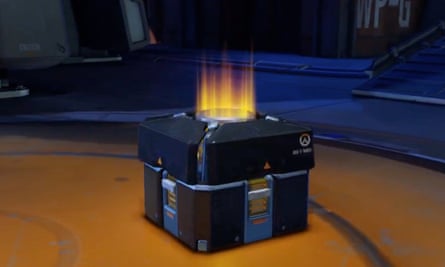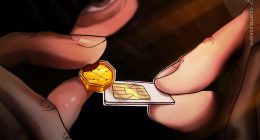More than 850 people have been referred to a clinic for video gaming addicts, as experts warn the UK is not doing enough to tackle gambling-style features in games on mobile phones and consoles.
The National Centre for Gaming Disorders (NCGD), which had its first patient in 2020, was originally given NHS funding based on seeing just 50 people a year. But the specialist London clinic has been treating 30 people a month since the end of March this year – more than seven times anticipated demand – taking the total to 855.
About a third of gamers receiving treatment said they spent money on “loot boxes”, gambling-style features that offer randomised rewards such as weapons or outfits for characters that cannot be “re-exchanged” for cash legitimately. Experts say these features, which have proved highly lucrative for video game firms, are normalising gambling behaviours in young people, by offering the rush of rewards that can entrench addiction.
Certain games are particularly likely to be cited by addicts, according to analysis of treatment sessions.
During 2021 and 2022, almost 12% of patients who played video games compulsively referred to playing Fortnite, with 10% citing Minecraft, 8% mentioning Call of Duty and 4.7% using the gaming platform Roblox.
The clinic offers help to gamers – more than half of whom are children – as well as family members, such as parents. Of the 855 referrals, 408 were gamers, of whom 227 were under 18.
Patients reported the total breakdown of family relationships, violence, and refusal by children to go to school.
Loot boxes have become increasingly common in gaming because they offer the games industry a source of continued revenue after the initial sale of the game.
Examples of loot boxes include “player packs” in the Fifa football series, which offer a random selection of footballers. Gamers can pay up to £87.99 a time for bundles of points that can be used to buy the packs.
Industry revenue from loot boxes is projected to hit $20bn (£15bn) a year by 2025, according to some estimates.
Prof Henrietta Bowden-Jones, the founder and director of the NCGD, said: “The monetisation of gaming via loot box purchases and the advertising of such gambling like features in games is normalising gambling behaviours in young people.”
“We need reassurance that protective regulation of these products will be implemented. We must take online harms seriously.”
Last year, the then culture secretary, Nadine Dorries, rejected calls for loot boxes to be regulated as gambling products, as they are in some other countries, saying the gaming industry could regulate itself. She said studies had shown a correlation between loot boxes and gambling addiction but that it was not clear whether the connection was causative.
But experts told the Guardian that Britain was lagging behind other countries, saying a preference for self-regulation was looking increasingly misguided.
Countries including Belgium, the Netherlands, Spain and Australia have either classed loot boxes as gambling or taken steps to doing so.
Sarah Mills, a professor in human geography at Loughborough University, said: “The UK is falling behind; the evidence has moved on.” She pointed to a series of recent studies that had added to the weight of evidence that showed a connection between loot boxes and problem gambling.
“[A game] provides joy on Christmas Day but parents often don’t know there are going to be requests for small amounts of money over and over again that could add up to hundreds or thousands of pounds,” said Mills.
App stores used by Apple and Android phone users are increasingly offering games with gambling-style mechanics, such as slot machines.

Leon Xiao, a loot box expert and PhD fellow at the IT University of Copenhagen, said there were informal standards for these games – such as a requirement to publish information about the probability of winning on a slot machine spin – but even these were not being adhered to.
“Apple says if you want to upload your game to the Apple Store, you need to make disclosures about the probability of randomised features,” he said. “We checked in 2021 and a third of companies were not doing it. Existing regulation is not being enforced.”
One reason that randomised rewards in games are not regulated as gambling is that, in theory, the returns are only digital and cannot be exchanged for currency.
But Mills said this was an outdated understanding of how younger people value in-game items.
The Gambling Commission has also previously taken action against third-party firms that allow gamers either to sell digital items for cash, or even to use them as currency to bet.
After the government’s decision not to regulate loot boxes, the Department for Culture, Media and Sport, as it was then known, set up a video games industry working group to examine loot boxes, which is expected to report on its progress within weeks.
A government spokesperson said: “It is important to ensure players, particularly children, can enjoy video games safely. We are working with industry to strengthen protections for players and will publish an update on this shortly.
“The government response to the call for evidence on loot boxes set out that the games industry can and should go further to protect children and adults from the risk of harm.”
Read More: World News | Entertainment News | Celeb News
Guardian








